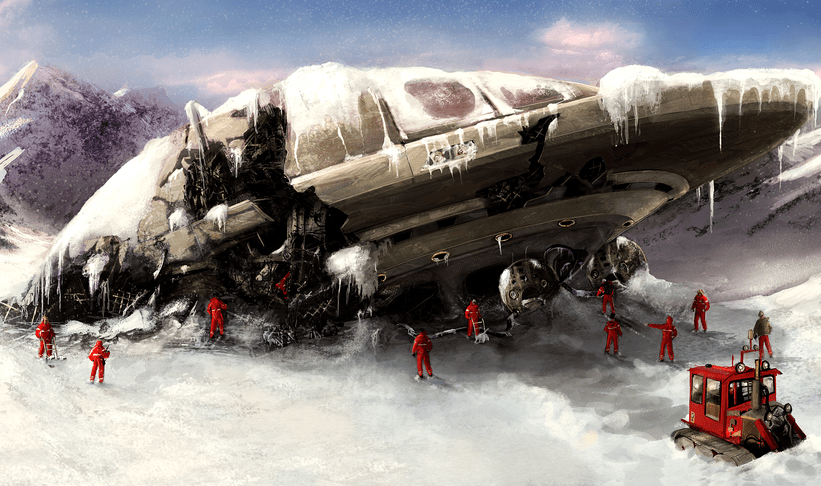VISUAL PROMPT
by Sans @ deviantart.com/Sanskarans

Write a story from the perspective of someone in this image (perhaps we cannot see them, but they're there).
Stranger In A Strange Land — Part II
I woke up. For the past few years, scientists had tested me to try to understand my survival—to no avail. I was a biological mystery, even to them.
Yet, finally, it seemed as though someone may have found a solution. This person was a Professor of Biology at the University of Lux, located in the city of Fortitude, the last arctic stronghold of mankind.
We had for hundreds of years been punished for our reluctance to change for the world, and now we were simply trapped at the uppermost part of the world. From what I had learned in the past three years since my revival, there used to be a settlement in the Antarctic as well, Perseverance, but it was acknowledged that, given that Fortitude had not communicated with them for over 20 years, they were probably dead.
This Professor of Biology was considered an expert on Tardigrades, a minute organism also known as the water bear, that could revive itself years after its death. Why they had not been brought in sooner, I could not guess. I supposed it was due to poor management.
It was discovered that by some chance, my drinking water on my voyage had been infested with those same organisms, and yet again by a stroke of luck their DNA had fused with mine. And while I was semi-alive during my icy imprisonment, I mostly lived in a state of hibernation, reviving myself upon the waters becoming warmer near the end of those three hundred agonising years.
Trough a lengthy public education campaign, despite the protests of the so-called “Anti-grades” (those who opposed our experiments) we slowly added Tardigrade DNA into the gene pool. While it resulted in some unfortunate disfigurements in the young, the survival of the species mattered far more.
We, the Council of Human Futures, (which included myself only because I had survived in a similar state to what we were planning) then began construction of a fleet of vehicles to leave this fiery, deserted planet behind. We planned to utilise both the Tardigrade DNA and a wormhole to speed up the trip.
In ten years, the fleet was complete. Some did not want to leave the Earth. We executed those who would not. Their death was more humane than it would have been, if they had been allowed to live. I was against this, but I had no real power. Once I had been expended of my usefulness, I was forgotten. Such is the arrogance of men, I suppose.
And so we boarded our craft, and bid goodbye to the world we had mistreated. The human race, reduced to a few million people in their ships, lying in a cold-induced coma. The fleet was programmed to wake up the survivors when we arrived at a similar planet to Earth. Everything was automated. We figured we had a 50% chance to find a suitable planet, and if we did about 25% of our people would survive (as indicated by our tests).
Years passed, or so I imagined in my refrigerated glass cocoon. “I feel like I’ve been here before”, I mused, amusing myself.
And yet when we were awoken, it was not at some unknown planet. It was at the same location Fortitude had been, but it seemed much colder than it was. I saw men in red standing around our primary craft… “have the others been released already?” I wondered. But it was not our people. They wore the uniforms of Arctic researchers that I had seen in history books at Fortitude.
I realised that we had failed. Our one good chance to survive as a species had not worked. All our experiments had been for nothing. The wormhole had simply brought us back in time.
There is no Brave New World.
